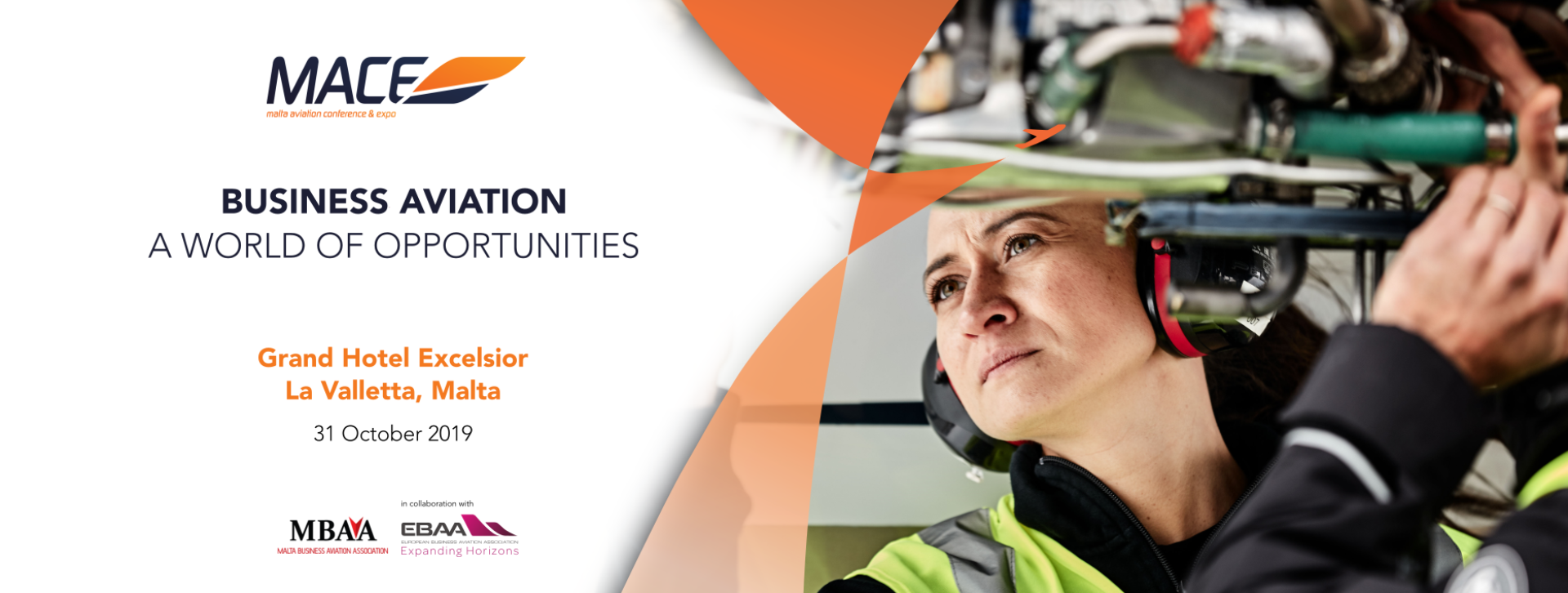Business aviation soaring to new heights in Malta
31 October 2019 (Valletta). As part of the premier edition of the Malta Aviation Conference and Exhibition (MACE - 30 October - 1 November in Valletta), the European Business Aviation Association (EBAA) and Malta Business Aviation Association (MBAA) are putting corporate aviation centre stage, demonstrating the significant impact the industry has had in Malta’s rapid growth.
The business aviation industry in Malta is an important segment of aviation and a growing economic resource for the country. This rapid growth is the result of the friendly regulatory environment and implementation of extensive investment by national authorities in recent years, as well as a consequence of forward-looking strategies undertaken by the private sector. At a time in which aviation is one of the most criticised sectors for its carbon emissions, industry and government leaders are meeting to discuss the way forward.
Business aviation in Malta: positive impact and challenges ahead
As part of the broader aviation community, business aviation represents 6% of Maltese aviation and has experienced a 51% increase in traffic compared to 2010 levels. This positive trend is also testified by the number of registered aircraft in Malta which has grown from 18 in 2010 to 165 in 2019. With an economic output of 511 million euros in 2018 and providing more than 3200 direct & indirect jobs, the sector has become an important contributor to the Maltese economy. The industry’s rapid growth is, however, putting pressure on the Maltese aviation framework. It is therefore imperative that as the country’s aerospace activity continues to grow and diversify, so does its infrastructure and the support provided by the Civil Aviation Authority.
While focusing on ensuring a prosperous future for the sector, the business aviation community is also fully committed to the fight against climate change.
For decades, business aviation has been fostering environmental stewardship across the full value-chain, and we are geared up to meet our carbon neutral growth targets by 2050. Taking up our responsibilities, both socially and environmentally, have and will continue to be core to our operations and innovations.
Athar Husain Khan, EBAA Secretary-General
As a sector, business aviation is committed to improving fuel efficiency 2% per year from 2010 until 2020, to achieve carbon-neutral growth from 2020 and to halve total CO2 emissions by 2050 relative to 2005. One of several pathways is through investment in new aircraft technology, which includes sustainable alternative fuel (SAF). While significant progress is being made in the realm of SAF, the availability of this fuel is not yet widespread, making access to it both challenging and costly. EBAA and MBAA, therefore, support the creation of policy mechanisms that enable and support the development of local infrastructure to produce and deliver the fuels required by the industry.
For more information on the event program and speakers click here. For further information on business aviation in Malta and in Europe, please visit MBAA.org and EBAA.org.
-ENDS-


